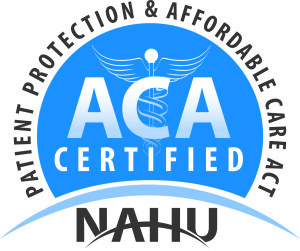DO I NEED TO INSURE MY HOUSEHOLD HELP?
If you hire household help, you will need to get the appropriate insurance coverage. The type of coverage depends on the nature of the employee’s position.
CONTRACTING WITH AN OUTSIDE FIRM
If you need a nurse, physical therapist, cook or other professional to work in your home, you may decide to contract with a business that provides these types of workers.
1. Determine if the person is your employee or the employee of the firm you hired. In most cases, the worker will be the “employee” of the organization.
2. Ask the firm for a copy of its certificates of insurance. This provides documentation that the firm provides workers compensation insurance for its employees. If the firm also offers health and disability insurance, you can feel comfortable that any worker injured on your property will receive medical treatment.
OCCASIONAL WORKERS
If you occasionally hire a babysitter to take care of your children or a young person in your neighborhood to rake leaves or clean the garage, you should talk to your insurance professional.
1. Find out how much liability coverage you have in your homeowners or renters policy and determine whether it is adequate. Generally, most policies start at $1 million worth of coverage.
2. Consider getting more liability insurance. You may elect to raise the amount or buy more coverage through an umbrella liability policy. This would provide broader coverage and a minimum of $1 million of liability insurance.
3. Learn about the no-fault medical coverage you have in your homeowner’s policy. If someone, other than an immediate family member, is injured on your property, you can submit their medical bills directly to your insurance company for reimbursement. Most people buy $1,000 worth of this coverage. You may consider raising the amount to $2,500 or $5,000.
PERMANENT FULL- OR PART-TIME EMPLOYEES
If you hire someone to work in your home on a permanent, regularly scheduled basis, you should consider purchasing a workers compensation policy for this person. This provides coverage for medical care and physical rehabilitation for an employee who is injured on the job and for lost wages if the employee is severely hurt and no longer able to work. It also provides death benefits.
1. Call your state department of insurance for the name and telephone number of the agency that administers workers compensation in your state.
2. Find out if your state requires employers to provide workers compensation for “domestic” employees.
3. Determine what the requirements are for this coverage to be mandatory. For instance, some states may require an employer who hires a certain number of employees to buy workers compensation. In other states, the determination might be based on the number of hours an employee would work.
4. If you’re required under state laws to buy workers compensation insurance and you fail to do so, your homeowner’s insurance policy will not pay for any fines, court awards or any other penalties against you.
AUTO INSURANCE
If the person working for you is going to drive your car to pick up groceries or take an aging parent to the doctor, make sure that your insurance company knows about the additional driver.
WHAT IS AN UMBRELLA LIABILITY POLICY?
If you are ever sued, your standard homeowners or auto policy will provide you with some liability coverage, paying for judgments against you and your attorney’s fees, up to a limit set in the policy. However, in our litigious society, you may want to have an extra layer of liability protection. That’s what a personal umbrella liability policy provides.
An umbrella policy kicks in when you reach the limit on the underlying liability coverage in a homeowners, renters, condo or auto policy. It will also cover you for things such as libel and slander.
For about $150 to $300 per year you can buy a $1 million personal umbrella liability policy. The next million will cost about $75, and $50 for every million after that.
Because the personal umbrella policy goes into effect after the underlying coverage is exhausted, there are certain limits that usually must be met in order to purchase this coverage. Most insurers will want you to have about $250,000 of liability insurance on your auto policy and $300,000 of liability insurance on your homeowner’s policy before selling you an umbrella liability policy for $1 million of additional coverage.
DO I NEED INSURANCE FOR A CHILD GOING AWAY TO COLLEGE?
With computers, TVs, printers, PDAs and MP3 players being shipped off to school, it is more important than ever that students and their parents purchase the appropriate insurance protection.
Theft can be a major concern on college campuses; according to U.S. Department of Education there were about 40,000 thefts in 2006. And campus fires are on the rise with a dramatic increase from a low of 1,800 fires in 1998 to 3,300 fires in 2005, according to the Consumer Product Safety Commission (CPSC).
For students who live in a dorm, most personal possessions are covered under their parents’ homeowners or renter’s insurance policies. However, some home insurance policies may limit the amount of insurance for off-premises belongings to 10 percent of the total amount of coverage for personal possessions. This means that if the parents have $70,000 worth of insurance for their belongings, only $7,000 would be applicable to possessions in the dorm. Not all insurers impose this type of limit, so you should check with your agent or insurance company representative.
Expensive computer and electronic equipment and items such as jewelry may also be subject to coverage limits under a standard homeowner’s policy. If the limits are too low, parents may consider buying a special personal property floater or an endorsement for these items. There are also stand-alone insurance policies for computers and cell phones.
Students and/or their parents may also want to consider purchasing a stand-alone policy specifically designed for students living away at college. This can be an economical way to provide additional insurance coverage for a variety of disasters.
Students who live off campus are likely not covered by their parents’ homeowners’ policy and may need to purchase their own renters insurance policy. Parents should consult their insurance agent or company representative to see if their homeowners or renters policy extends to off-campus living situations.
For students going off to college, we recommend the following:
Leave valuables at home if possible
- While it may be necessary to take a computer or sports equipment to campus, other expensive items, such as valuable jewelry, luxury watches or costly electronics, should be left behind or kept in a local safety deposit box.
Create a “dorm inventory”
- Before leaving home, students should make a detailed inventory of all the items they are taking with them, and revise it every year. Having an up-to-date inventory will help get insurance claims settled faster in the event of theft, fire or other types of disasters. For an easy way to put together an inventory, use the I.I.I.’s free Home Inventory Software.
Engrave electronics
- Engrave electronic items such as computers, televisions and portable devices like iPods with your name or other identifying information that can help police track the stolen articles.
Here is some advice to guard against theft of your personal belongings on campus:
- Always lock your dorm room door and keep your keys with you at all times, even if you leave briefly. And, not just at night—most dorm thefts occur during the day. Insist your roommates do the same.
- Don’t leave belongings unattended on campus. Whether you are in class, the library, the dining hall or other public areas, keep book bags, purses and laptops with you at all times. These are the primary areas where property theft occurs.
- Buy a laptop security cable and use it. A combination lock that needs decoding may be just enough to dissuade a thief.
- Most campus fires are cooking related so be careful about the types of hot plates or microwaves you to bring to school, and how you use them.
In the event a student is planning to have a car on campus, choose a safe, reliable vehicle and do some comparison shopping to find the best auto insurance rate. You should also check with your own insurance company as it may offer a multi-policy discount. If you decide to keep the student’s car at home, be sure to contact your auto insurance company, as many insurers will give discounts for students who are living away school at least 100 miles away from home.
DO I NEED SPECIAL COVERAGE FOR JEWELRY AND OTHER VALUABLES?
A standard homeowner’s policy includes coverage for jewelry and other precious items such as watches and furs. These items are covered for losses caused by all the perils included in your policy such as fire, windstorm, theft and vandalism.
However, there are special limits of liability for certain items, meaning that the insurer will not pay more than the amount specified in the policy. One important limit is for the theft of jewelry. To keep coverage affordable because jewelry can be easily stolen, the standard policy has a relatively low limit of liability for theft, generally $1,500.
If you own valuable jewelry or other items that would be difficult to replace, there are two ways you can increase coverage: by raising the limit of liability or “scheduling” your individual pieces through the purchase of “floater” policies. Raising the limit of liability is the cheapest option; however, there may be a limit on the amount you can claim for the loss of any individual piece, say $2,000, when the overall limit is $5,000.
Scheduling each piece or item may cost more in premiums, but it offers broader protection because the floater covers losses of any type, including accidental losses—such as dropping your ring down the drain of the kitchen sink or leaving an expensive watch in a hotel room—that your homeowner’s insurance policy will not cover. Before purchasing a floater, the items covered must be professionally appraised. The cost of this service varies depending on where you live.
Disclaimer
Data and information is provided for informational purposes only, and is not intended for any other commercial or non-commercial purposes. Neither David M. Kulawiak, Inc. nor any of its data or content providers shall be liable for any errors or delays in the content, or for any actions taken in reliance thereon. By accessing our web site, a user agrees not to redistribute the information found therein. We provide customized links to select companies for your convenience only. We do not endorse or recommend the services of any company. The company you select is solely responsible for its services to you, the user. We shall not be liable for any damages or costs of any type arising out of or in any way connected with your use of our services.





